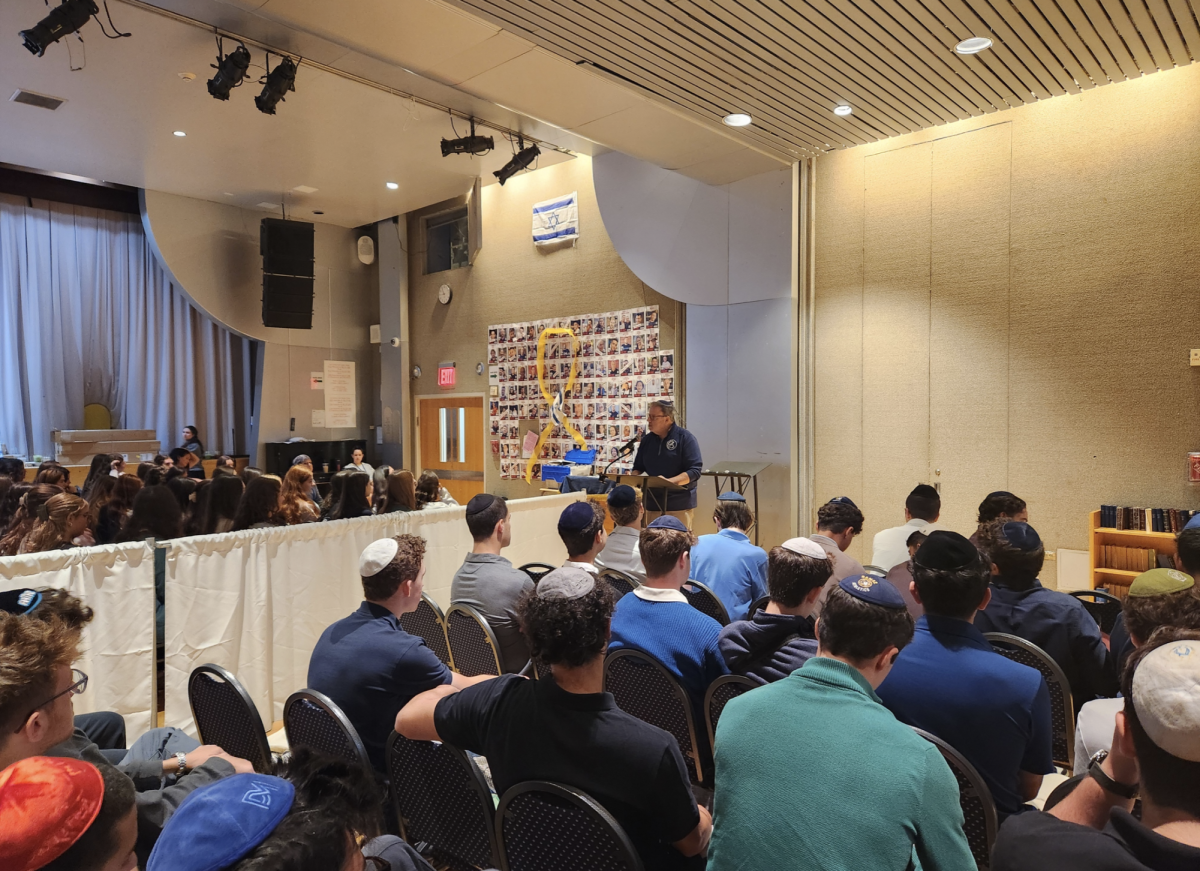This year, Ramaz has introduced a new Mincha policy, requiring each grade to attend Mincha one day a week. While Mincha attendance has always been encouraged, this is the first time in recent years that it has been made mandatory.
“One of the things I noticed is that Mincha was very, very loose and there was a lot of confusion as to if students had to go to Mincha. I liked the fact that it was less coercive, but I didn’t like the fact that there were some people who never went to Mincha,” Rabbi Frank, principal of the Upper School explained. “People should be aware that there is a Mincha minyan in the school that they should be a part of.”
In addition to offering an opportunity to enhance spirituality at Ramaz, the policy has its practical benefits. For faculty members, gathering the entire grade at the same time offers an unexpected opportunity for communication. “The policy re-enforces the idea that prayer is a communal thing that we do together,” 11th grade grade dean Ms. Miriam Gedwiser noted. “It happens to be very convenient in terms of time to have the whole grade together. If we need something from them or just need to tell them something, this time is really nice.”
While the administration views the new requirement as a step forward for community and spirituality at Ramaz, students have mixed reactions. For some students, like Nate Berman ’26, the new policy is perfectly balanced. “I like that Mincha is required only once a week. Some days should be optional,” he commented.
Others, however, feel that there is still room to improve, especially when it comes to Mincha attendance on days when it is not required. “I think that although the new Mincha policy offers Mincha to all grades every day, it is not sufficiently encouraged to go every day,” Asher Rosenfeld ’26 said. “This isn’t ideal because if the administration would encourage students even when it isn’t their day, it would cause them to go to Mincha more, thus enriching their relationship with Hashem.”
Some younger students like that this time to build a connection with Hashem has been added into the schedule. “Scheduling this once a week period where I have time to think about my relationship with Hashem is very meaningful,” Theo Berman ‘28 said.
Although there are some issues that are yet to be worked out and some varying opinions among students about the policy, mandatory once a week Mincha seems to be here to stay. “It’s an important lesson to learn for when you are an adult,” Rabbi Frank said. “Training the muscle of making a minyan is a good thing.”



